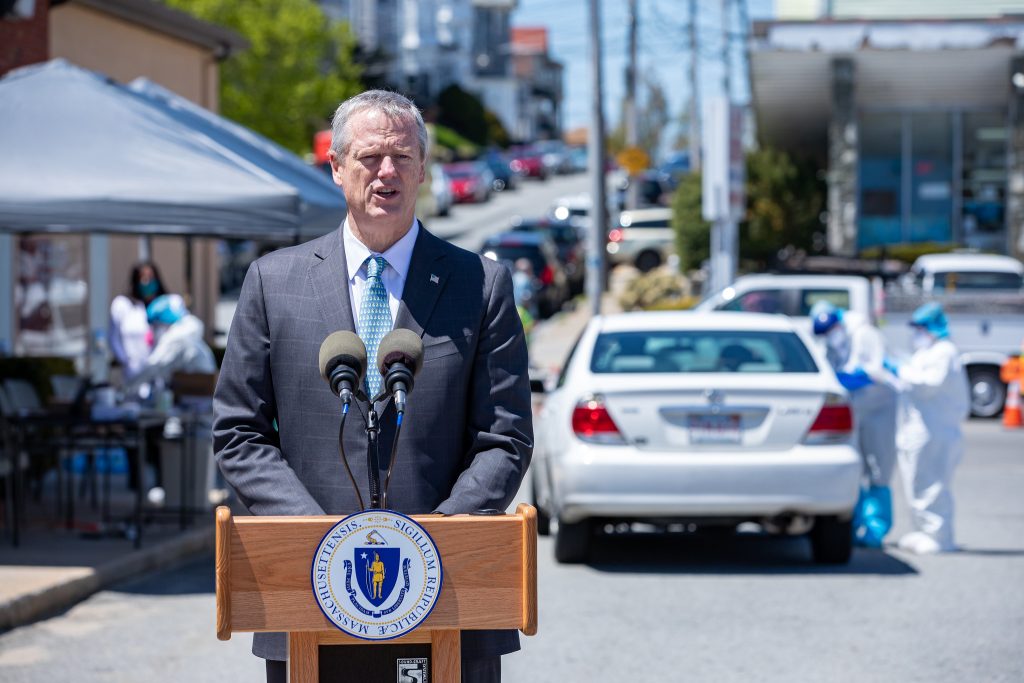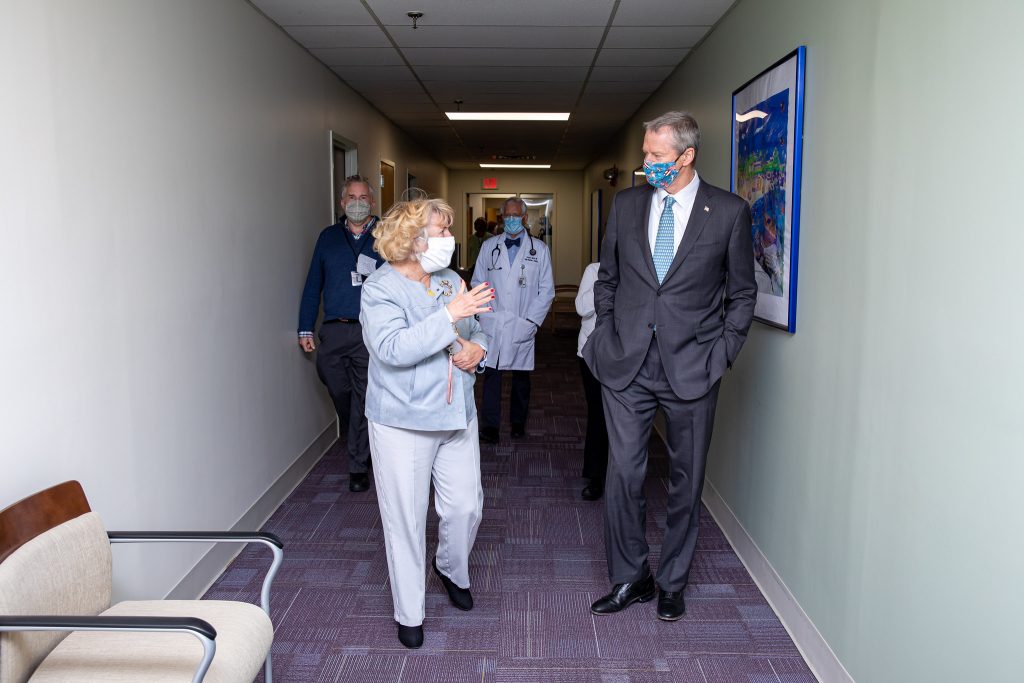
FALL RIVER – Governor Charlie Baker today visited a drive-through testing site at Stanley Street Treatment and Resources (SSTAR) in Fall River, one of 18 community health centers to expand COVID-19 testing capacity in recent weeks through a partnership with the Baker-Polito Administration, the Massachusetts League of Community Health Centers, and Quest Diagnostics. Following the visit, Governor Baker highlighted an expansion of testing criteria included in new guidance from the Department of Public Health and provided updates on testing capacity and the Commonwealth’s first-in-the-nation contact tracing initiative.
Expanded Testing Criteria: Yesterday, the Department of Public Health (DPH) issued updated guidance about the appropriate use of laboratory testing for COVID-19 and expanded testing recommendations in clinical and commercial laboratories. The new guidance expands the criteria for COVID-19 testing eligibility.
Updated guidelines recommend the following:
- All symptomatic individuals, including those with mild symptoms, should be tested. Symptoms of COVID-19 include:
- Fever, chills or shaking chills
- Signs of a lower respiratory illness
- Fatigue, sore throat, headache, body aches or new loss of sense of taste or smell
- Other less common symptoms can include gastrointestinal symptoms and inflammatory conditions
- In elderly, chronically ill or debilitated individuals, symptoms of COVID-19 may be subtle, including alterations in mental status or in blood glucose control
- All individuals who are identified as close contacts of a COVID-19 confirmed case by a local board of health, DPH, the Community Tracing Collaborative or a healthcare provider should be tested.
Read the guidance here.
Testing Capacity Update: Testing remains a critically important component of the Commonwealth’s plan to begin re-opening the economy. In total, the Commonwealth has conducted more than 400,000 tests. Daily testing data can be found on the COVID-19 Response Command Center’s daily dashboard.

This progress has been made possible by the work of partners like SSTAR who have established successful testing sites and are participating in other key programs like isolation housing and contact tracing. Expanded testing partnerships are specifically focused on increasing testing in areas hardest hit by COVID-19, including high-density communities and communities of color. Mobile testing is being conducted on-site at nursing homes, rest homes, and assisted living facilities, and to date, over 38,000 tests at more than 360 facilities have been conducted.
Thanks to shared efforts by the Administration and health care and lab partners to ramp up testing, Massachusetts now has one of the top per-capita testing rates in the country, and currently outpaces some countries around the world on testing totals.
Contact Tracing Update: Last month, the Baker-Polito Administration, DPH, Partners in Health and local Boards of Health launched the Community Tracing Collaborative (CTC), a first in the nation statewide contact tracing initiative to mitigate the spread of COVID-19.
Since calls began on April 12, tens of thousands of Massachusetts residents have participated in contact tracing. Staffed with nearly 1,600 tracers, the Tracing Collaborative has reached nearly 18,000 confirmed cases and over 14,000 of their contacts since calls began on April 12. In part due to effective social distancing measures, the median number of contacts reported by each confirmed case remains approximately two.
As the CTC continues its contact tracing work to mitigate the spread of COVID-19, it is critical that Massachusetts residents answer the phone when a contact tracer calls or texts. Contact tracers will only reach out from phone numbers with 833 or 857 area codes, and the phone’s caller ID will say MA COVID Team. The Community Tracing Collaborative will not ask for social security numbers or health insurance information.
To learn more about the MA COVID Team and the Community Tracing Collaborative, visit www.mass.gov/MATracingTeam.
